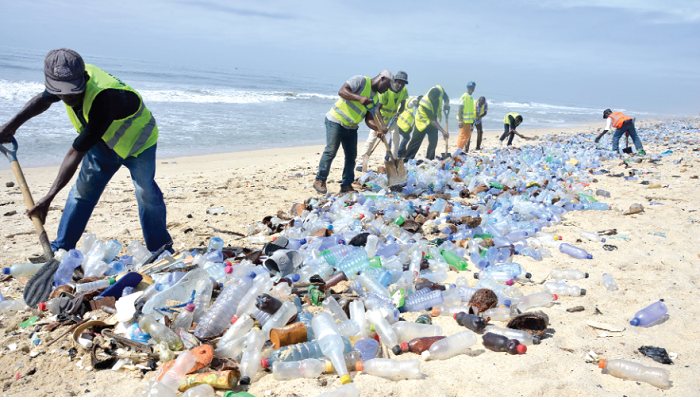Government considering ban on plastic items
Environment, Science, Technology and Innovation Minister, Prof. Kwabena Frimpong-Boateng says government is considering a ban on the use of some plastic items such as black polythene bags.
He said government is unhappy with the pollution caused by the haphazard dumping of plastic waste in the country and plans to take serious measures to address the challenge.
“There has to be a ban on some plastic, but how we are going to do it is something our plan will determine. We will have to start something. I can imagine the situation where we will start with carrier bags, straws, chewing gums, plastic cutlery and things like that …
“We will start with those things and when the water situation improves and we get alternatives for containers for fluids…palm oil and cooking oil in the market and so on,” he told Joy News’ Daniel Dadzie.
Prof Frimpong-Boateng is, however, calling for adequate education on the need for a ban because “we don’t want a situation where you ban things and people will flout the regulations but you can’t prosecute. We don’t want that.”
 Plastics have taken over Ghana’s beaches
Plastics have taken over Ghana’s beaches
Plastics belong to the chemical family of high polymers, consisting of a chain of molecules containing repeated units of carbon atoms. Because of this inbuilt molecular stability, plastics do not easily break down into simpler components.
Plastics do decompose, though not fully, over a very long period of time, on average 100 to 500 years according to research.
Commercially available plastics; polyolefins such as polyethylene, polypropylene have been further made resistant to decomposition by means of additional stabilisers such as antioxidants.
Ghana like countries around the world is struggling to deal with the mess plastic materials cause as most products are packaged in polyethylene. This forms about 70 percent of the plastic waste in the waste stream.

From the pollution of water bodies, littering of streets and chocking of drains anytime it rains, countries are moving to take stringent measures to deal with the situation.
Kenya has already banned the use of plastics.
Available records from the city authority, Accra Metropolitan Assembly as of 2016 indicate that over 2,500 tonnes of waste generated daily, 501,875 yearly.
Out of that figure, only1,125 tonnes representing 45 percent is collected. The remaining 55 percent remain in the system.
Source: Ghana | Myjoyonline.com





